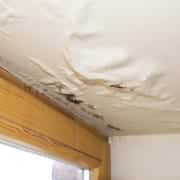Why Is My Sewer Bill So High?
Ever glanced at your sewer bill and felt your eyebrows leap toward the heavens? You’re not alone. Many homeowners are finding their sewer costs mysteriously climbing, without an apparent change in household habits. It begs the question: why is this essential service taking such a hefty toll on our wallets? The sewer system is a part of our everyday life unless we have a septic. It is important to keep it functioning well as it carries wastewater to the treatment area. Let’s learn about when a sewer bill is high, what might be causing it, but also how to spot an issue before it’s too late.
Why Is It Important to Know About the Sewer?
Understanding the intricacies of sewer-related expenses can be a daunting task for many homeowners. However, with a clear understanding of the costs involved and knowledge of how to maintain your sewer system efficiently, you can navigate these expenses more effectively.
Average Sewer Bill Cost Per Month
The average sewer bill for homeowners typically falls within the range of $20 to $60 per month. This figure, however, is subject to significant variation based on factors such as location, usage, and the rate structure set by the local municipality. In Florida, the average monthly cost for sewer services can range between $20 and $80. This variation largely depends on the specific locality and individual usage levels.

Why Is My Sewer Bill So High?
A high sewer bill can be attributed to several factors. Increased water usage, leaks in the system, or even billing errors could be potential culprits. If you notice a sudden spike in your sewer bill, it’s crucial to investigate and identify the cause.
Signs of a Sewer in Trouble
Certain signs indicate that your sewer system might be in trouble:
- Unusual Noises: Skeletons shouldn’t be the only things rattling in your home. Gurgling pipes could indicate a backup.
- Foul Odors: A whiff of something foul could mean your sewer line is waving a red flag.
- Water Woes: Puddles in your yard or slow drains inside your home? These are classic SOS signals from your sewer system.
What to Do When Your Sewer Bill is High?
If your sewer bill is higher than usual, start by reviewing your water usage. Look for any significant changes that could justify the increase. If your water usage hasn’t changed drastically, consider checking for leaks in the system or getting a professional inspection done.
Ways to Find Out What Is Causing Issues with Sewer
Identifying what’s causing issues with your sewer involves a few steps.
- You can monitor your water meter for unusual activity which might indicate a leak.
- Conducting dye tests in toilets can also help detect leaks.
- Inspecting pipes for corrosion or blockages can reveal issues, and video inspections can provide deeper insights into the state of your sewer system.
Average Sewer Repair Costs
Sewer repair costs can vary widely. Minor fixes might only cost a few hundred dollars, while major repairs or full replacements can run into the thousands. It’s important to get a professional estimate for any repair work.

Ways to Maintain The Sewer
Maintaining your sewer system involves being cautious about what goes down the drains, using strainers to catch debris, performing regular drain cleaning, and avoiding planting trees near sewer lines. Regular maintenance can prevent costly issues in the future. Ideas are:
- Regular Check-Ups: An ounce of prevention is worth a pound of cure. Regular inspections can save you a ton of trouble.
- Mindful Flushing: Your toilet isn’t a trash can. Flush wisely.
- Plant Placement: Keep trees and larger plants away from sewer lines—their roots crave chaos.
Other Information To Know
Now that you know about high sewer bills, let’s take a look at other areas of maintenance.
One of those is knowing where the water meter is located. This is important as it controls the amount of water that flows into your home. Also, if you monitor it, you can find out the amount of water that is being used in the home and hopefully prevent future issues.
Another is when the city is responsible for sewer lines. The city is responsible for when they start at the main underground sewer pipe and are past your property boundaries. This is the main sewer line. On the other hand, the lower lateral and upper lateral sewer lines are the responsibility of the homeowner.
Lastly, it is important to know how deep the sewer lines are buried. Residential lines are usually buried 5-6 feet deep, while in colder areas it is 4-8 feet. On the other hand, city lines are buried 12 feet deep.
When Do I Call a Professional?
If basic troubleshooting doesn’t resolve the issue or if you notice signs of significant damage, it’s time to call a professional plumber or sewer service. They also have the expertise to diagnose and fix complex sewer problems. The sewer is nothing to mess with and you want to know if it is something you or the city are responsible for.
Check out the video below about a woman and her high sewer bill.
Conclusion
Being informed about your sewer system and taking proactive measures can help keep costs down and extend the life of your infrastructure. By monitoring your usage, performing regular maintenance, and acting swiftly when issues arise, you can effectively manage your sewer expenses. It’s important to keep up with the maintenance and also know what you or the city are responsible for. While taking a look at your sewer bill, this is a great time to call Honor Services as they are your best home inspection company in Brevard County, FL.













